Analysis of Scoot and TigerAir Merger in Singapore's Airline Industry
VerifiedAdded on 2020/05/03
|5
|551
|291
Report
AI Summary
This report provides a comprehensive analysis of the Scoot and TigerAir merger, focusing on the political, economic, and social factors that influence its success. The report begins with an introduction, followed by an in-depth PESTLE analysis, which examines the political landscape of Singapore, the economic conditions, and the social aspects affecting the airline industry. The analysis highlights the regulatory environment, economic growth, exchange rates, and consumer behavior. The conclusion summarizes the key findings, emphasizing the importance of these factors in the merger's success. References to relevant literature are included to support the analysis. This report is designed to provide a clear understanding of the challenges and opportunities presented by the Scoot and TigerAir merger within the context of the Singaporean airline industry.
1 out of 5
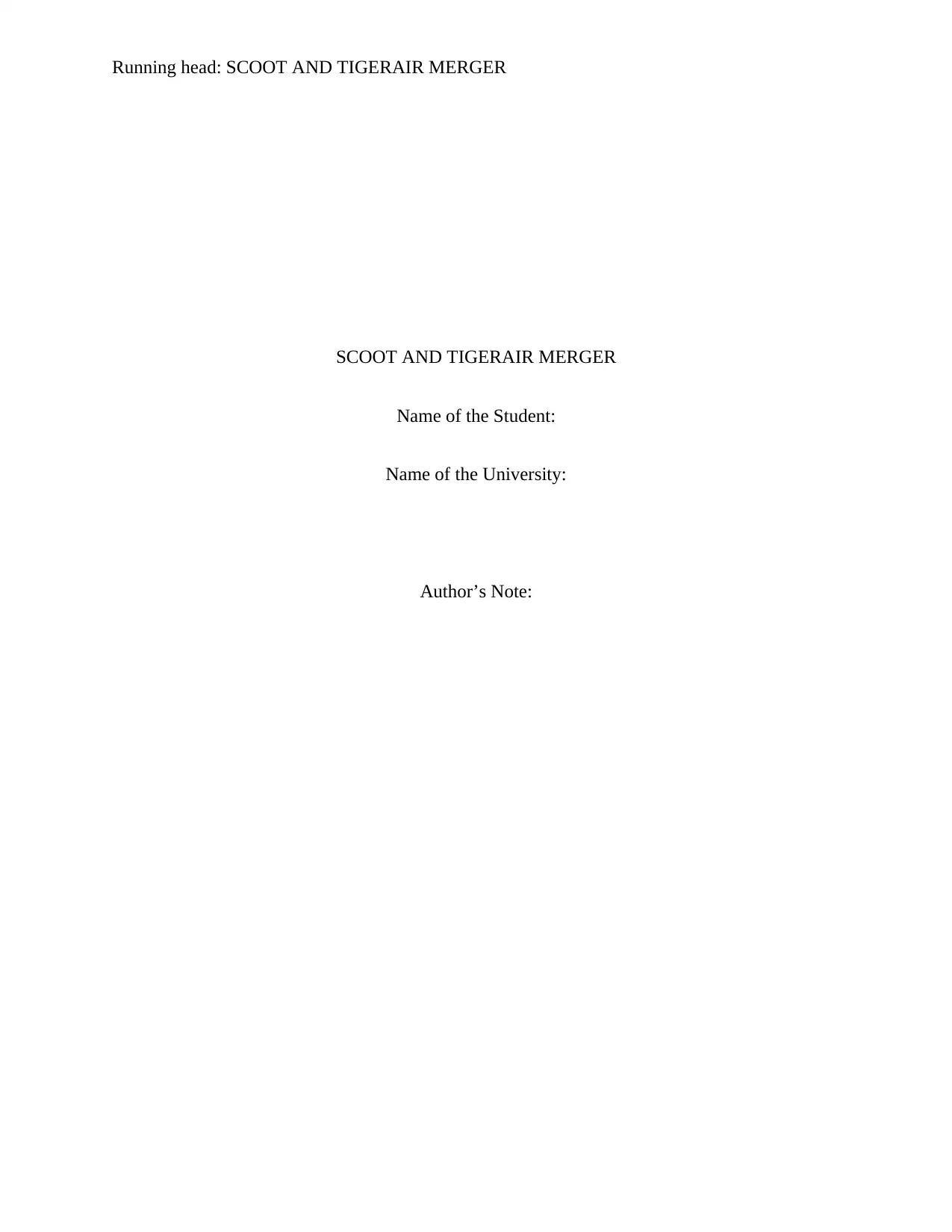
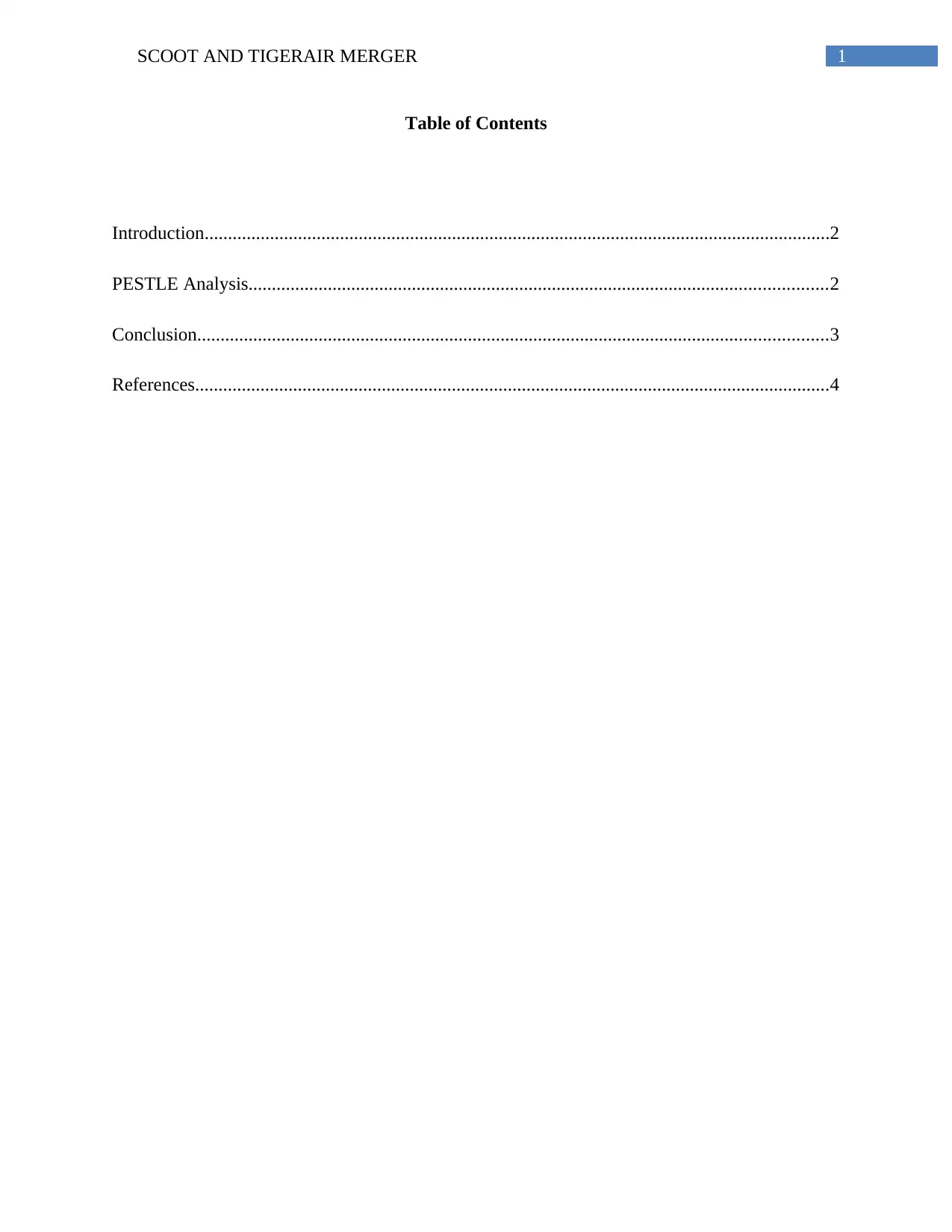
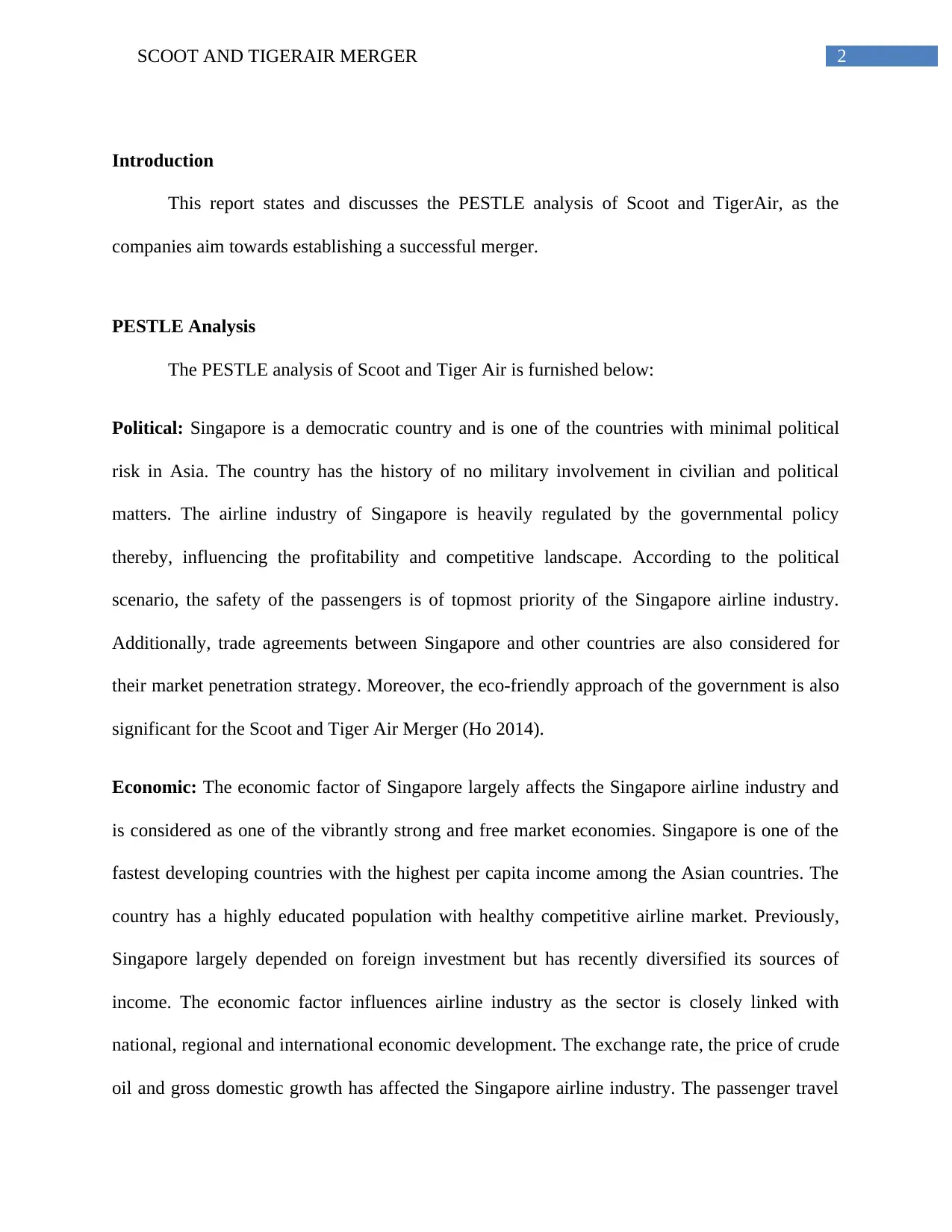

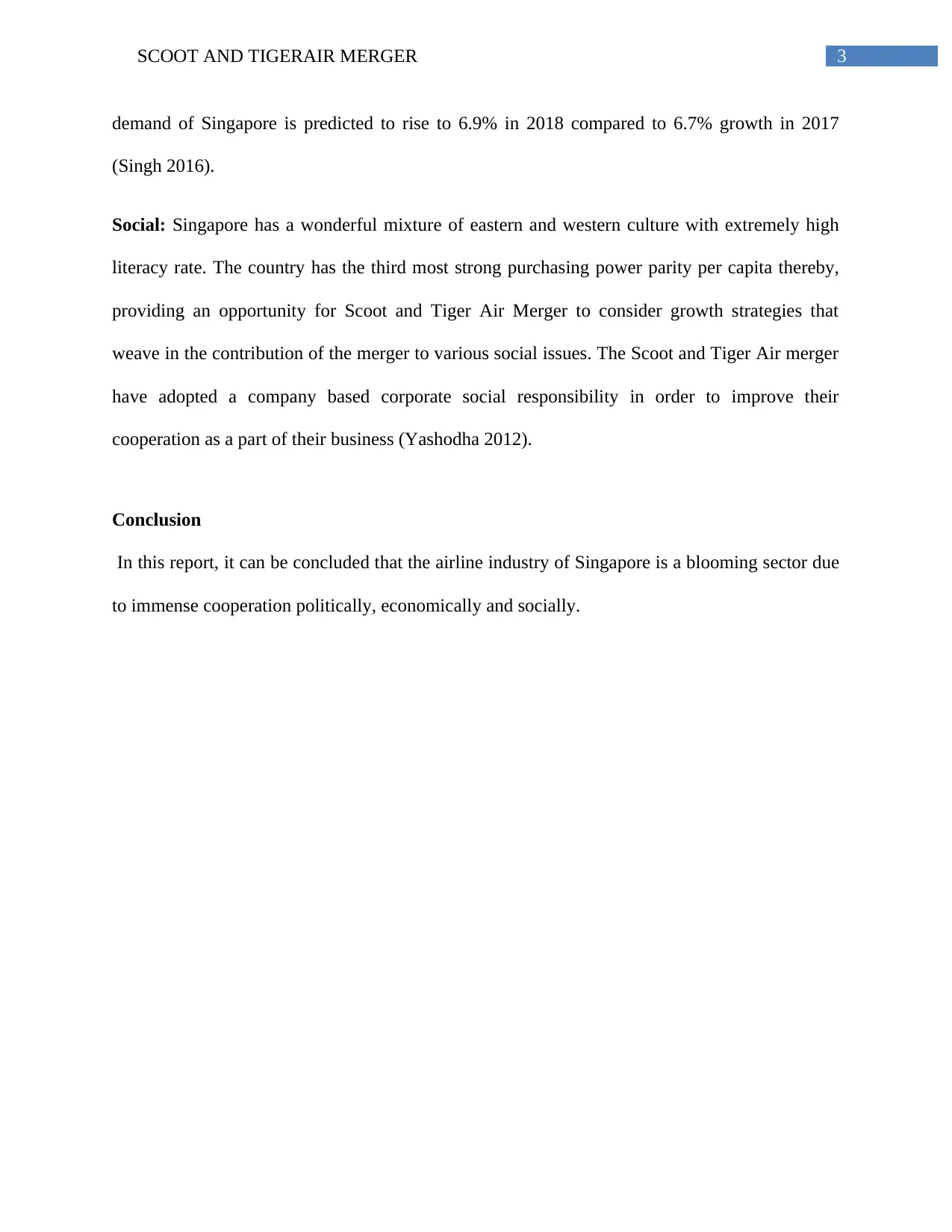
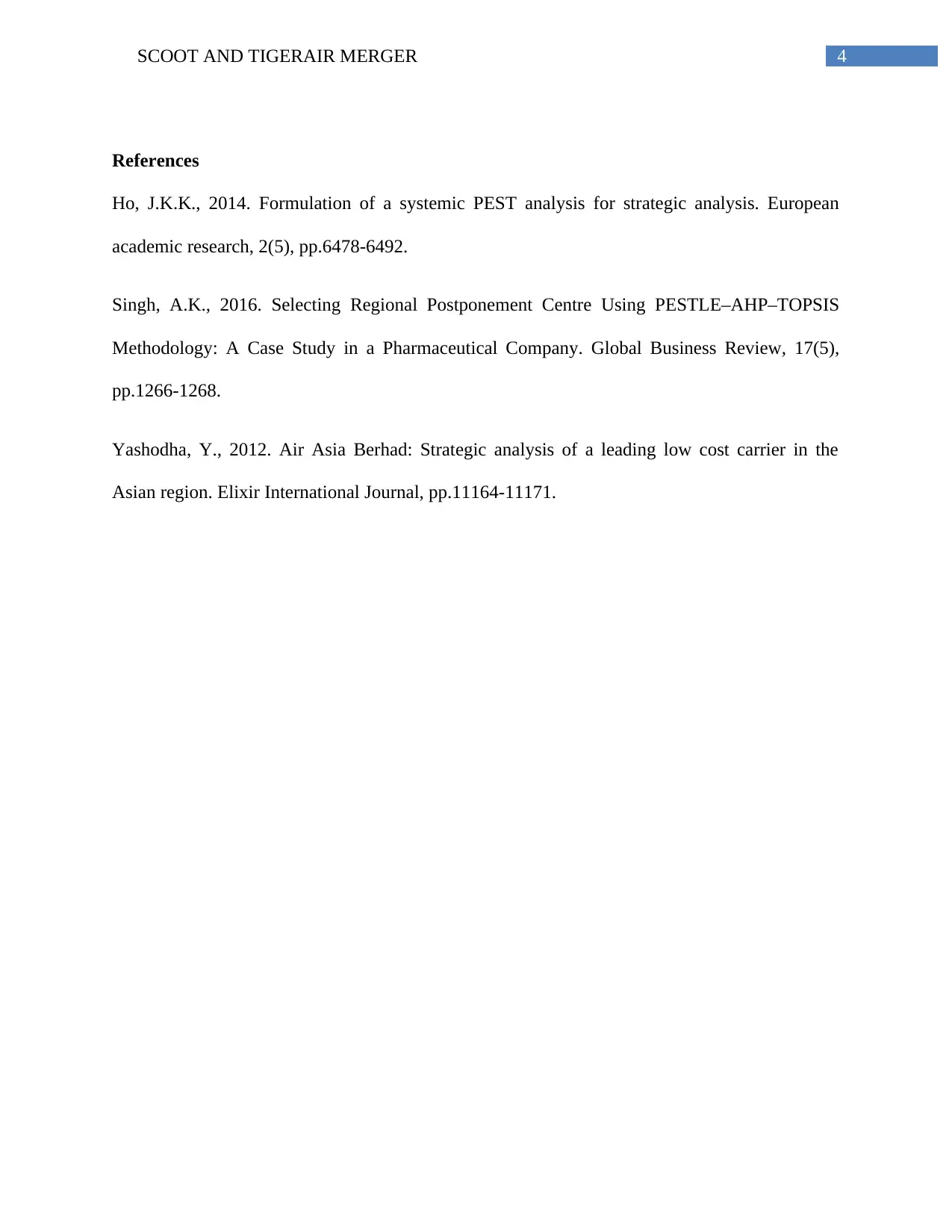






![[object Object]](/_next/static/media/star-bottom.7253800d.svg)